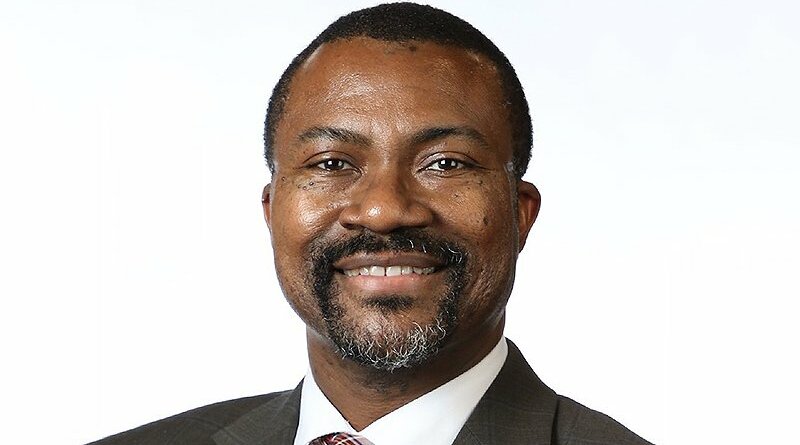We Have to Do Something to Level the Playing Field
As told to Usha Lee McFarling
July 14, 2020 — Being told the operating room has already been cleaned. Being questioned by patients about where you went to medical school. Being asked for ID every time you enter your own hospital. Being told you don’t look like a doctor. In a series of conversations with Medscape, Black physicians talk about racism they’ve faced in their training and their clinical work, the change they’d like to see, and how they’re coping during this period of both pandemic and racial upheaval.
When I went to away to school, what I thought was, “I’m leaving Mississippi. I know there’s racism here. But in Pennsylvania, that’s the north and it’ll be fine.” But you see the same racism ― maybe not the same degree, but you see it. I still remember vividly an evening when I was in a summer research program and was walking with my roommate, who was also African American. People in a pickup truck passed us, shouted a racial epithet, and said, “Open up your eyes so we can see you.” My roommate was ready to chase them, but I said, “No. We’re walking and we have nothing, and they’re in a truck and we don’t know what they have. We have more to lose than to gain, so let it go.” You have to control your anger.
In residency, when I was training in cardiology, I would go out to do a stress test or an echo and would introduce myself as Dr Lewis, one of the fellows. I would be asked repeatedly, “Where did you go to medical school?,” and I didn’t think much of it. I guess I was pretty naive. But when I asked my co-fellows if they were annoyed by people always asking where they went to medical school, they said, “We never get asked that.” That’s when I realized people were only asking me because I was Black. I thought, here I am, a cardiology fellow at one of the best programs in the country, at Harvard Medical School, and patients are checking my credentials.
Continued
There have been times I’ve been paged for a consult for a patient that wasn’t doing well, and I walk in with my white coat, with my stethoscope, with my name tag, with everything, and the surgeons look up and say, “We don’t need transport, we’re waiting for cardiology.” And I will say, “You have him.” Their faces get red and they apologize, and I usually say, “It’s OK, let’s just focus on this patient.” Every part of the hospital, every job is truly important, and we all work together, but it’s frustrating when you work so hard for so long ― 4 years of college, 4 years of medical school, and 7 years of training ― and you get confused for transport.
What it made me realize ― and I’ve told my colleagues this ― is that I could have easily been George Floyd. Because if I get pulled over, they will treat me just like every other Black man. I always drive with my hospital ID in the car. I always keep my hands in plain sight. I have that level of anxiety every time I get behind the wheel of my car.
Even though I was valedictorian of my high school, not a single counselor told me I should apply to Harvard or Yale or Princeton or Cornell. They didn’t give me any advice. I had no clue. Don’t get me wrong, I am excited to be an alum of Penn State, which prepared me well for my career; however, I had no help about that decision either. For me, it’s important to mentor students. We have to do something to help level the playing field. If you look at the top cardiology programs, there are only three Black chiefs of cardiovascular medicine. So, I’m excited to be the new chief of cardiovascular medicine at Stanford. I’m hoping by being here and doing a good job, others will say, “I can do that too.” I’m not equating myself with Barack Obama at all, but it’s like seeing how Black children can now say I can be president too. It doesn’t have to be a White man.
Continued
One thing that’s hard for me, for many reasons, are the poor outcomes we see in so many Black cardiology patients. I lost a family member at an early age from a heart attack. He lived in a small town in Mississippi. He had a heart attack at the typical time you have a heart attack, 1:00 in the morning. He then sat there at a small community hospital for 6 hours without getting treatment and without getting transferred to a bigger hospital where he could get the treatment he needed. The rationale was that the ambulance drivers needed their sleep. By the time they called an ambulance, the damage to his heart was done. A simple heart attack that could have been fixed led him to die, all because of a lack of access to care. He was in his 40s.
My question, all these years later, is to ask, if he had been the mayor of the town, if he had been a selectman, if he had been a business owner, would they have waited until the morning to transport him? I think we all know the answer. When they did finally treat him, he had a lot of complications. Afterwards, we found out that not only did they tear his artery without realizing it, they didn’t even open his stent all the way.
The cardiologist in Mississippi passed the same tests as us, he had the same training, so my question is, Why are there more complications in Black patients? Are our arteries different, or is the quality received from the doctor different? What I wonder is if that doctor cared enough to go all-in to save his life. There are a lot of times we have to look in the mirror as physicians and say, Do we care enough? Are we willing to go all-in to save this life? That can make all the difference. The decision we make can mean years of life for a patient, decades of life, chances to quit smoking, chances to lose weight, and chances to see grandchildren grow up.
Continued
Eldrin F. Lewis MD, MPH, was born in the Mississippi Delta and attended a high school that did not hold a desegregated prom until 1987. His history book featured a confederate flag on its cover. Lewis’ father, a plant pathologist, was a PhD and the US Department of Agriculture’s first Black director of research. His mother was an elementary school teacher. Valedictorian of his high school, Lewis chose to attend Penn State University because his family had recently moved to Pennsylvania. He then attended the Perelman School of Medicine at the University of Pennsylvania, received an MPH from Harvard School of Public Health, and trained at Brigham and Women’s Hospital, where he worked and taught for over 2 decades. In March, Lewis was appointed chief of cardiovascular medicine at Stanford University.
Usha Lee McFarling is an American science reporter who has written for the Los Angeles Times, Boston Globe, STAT News, and the Knight Ridder Washington Bureau. In 2007 she won a Pulitzer Prize for Explanatory Reporting. Follow her on Twitter @ushamcfarling.




